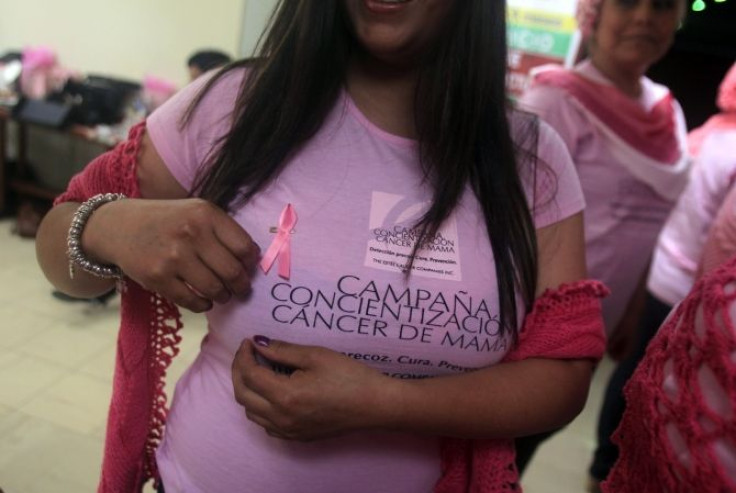Diet, Exercise Post Menopause Help Reduce Risk of Breast Cancer

Controlling diet and exercising may be the key in fighting breast cancer in post-menopausal women.
An estimated 226,870 women will develop breast cancer in the year 2012, according to National Cancer institute. Risk factors for breast cancer include, gender, age and menstrual cycle along with certain genetic mutations. Previous research has shown that women with diabetes, especially after menopause, are at higher risk of breast cancer.
A new study shows how some of these risks may be reduced through diet and exercise.
"By using nutrient tracers for fat and sugar, we tracked where the body stored excess calories. In lean models, excess fat and glucose were taken up by the liver, mammary and skeletal tissues. In obese models, excess fat and glucose were taken up by tumors, fueling their growth," says Erin Giles, PhD, from the University of Colorado Cancer Center and the paper's lead author.
In other words, in normal-weight women, excess calories go to healthy tissues while in obese women, the calories power tumor cells. Giles said that menopause might be an opportunity for women to control their diet and control their risk of breast cancer through weight management.
The study also showed that tumors present in obese animals had increased levels of the progesterone receptor that is associated with accelerated growth of the tumor.
Further, genetic analysis on human cancer cases also showed that breast cancer in obese women with progesterone receptor had the same metabolism rate.
"Basically, we saw an abnormal metabolic response to fat and sugar in the obese that, in many ways, mirrors the response to fat and sugar in Type II diabetes," Giles said.
Researchers then tested whether or not using a drug for type-2 diabetes treatment has any effects on breast cancer. Metformin is either used alone or with other medication in type-2 diabetes where the body doesn't use insulin normally. Previous studies have found that the drug is effective against ovarian cancer.
"With treatment, tumor size was dramatically decreased in the obese, and tumors showed reduced expression of the progesterone receptor," Giles says.
The research team found that weight gain around menopause was the most dangerous for women as it increased the risk of fast, aggressive type of breast cancer. They add that, although drugs are helpful, weight management and lifestyle changes may aid in reducing the risk of breast cancer.
The study is published in the journal Cancer Research.



























